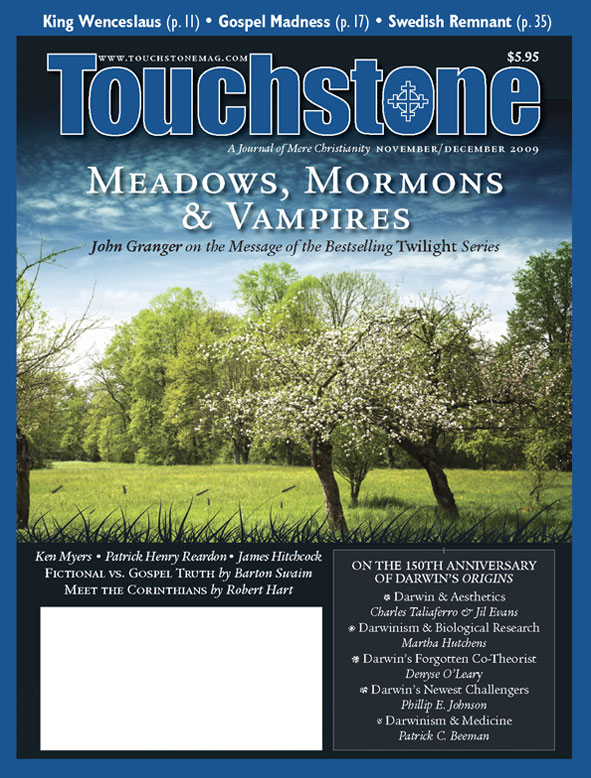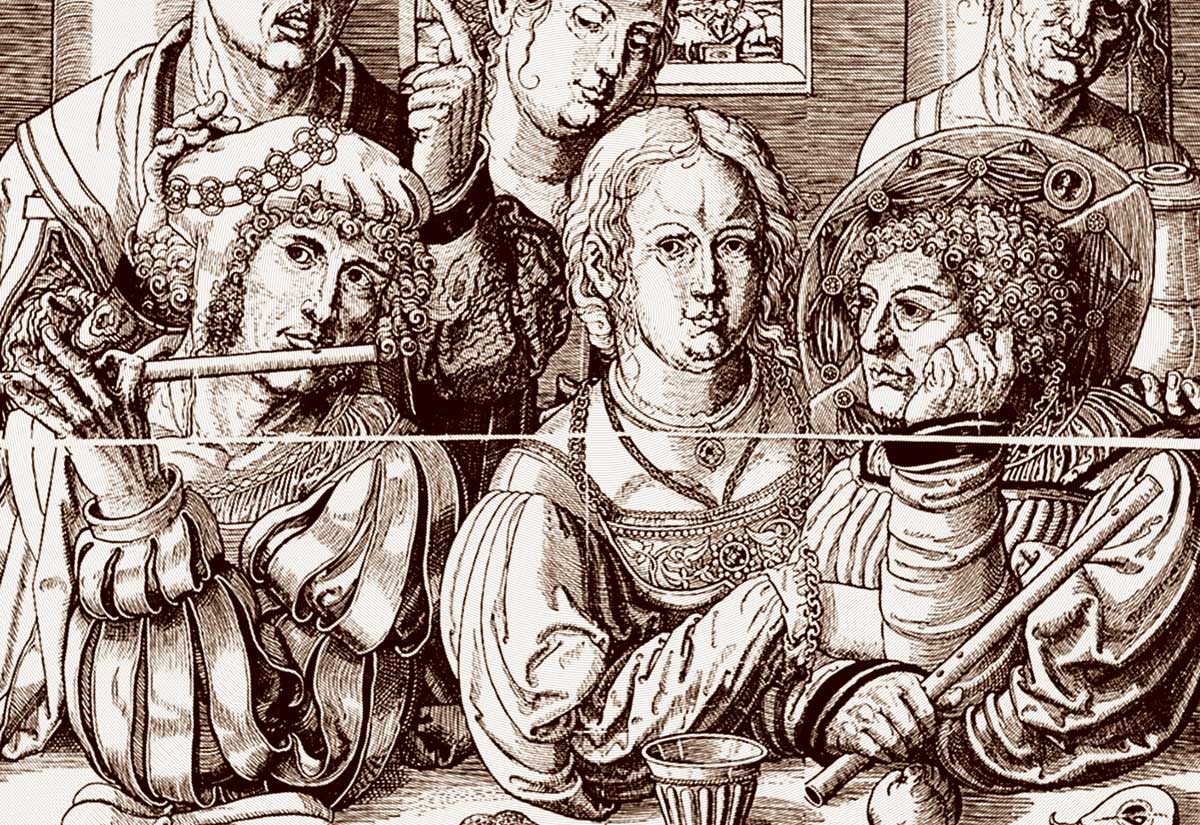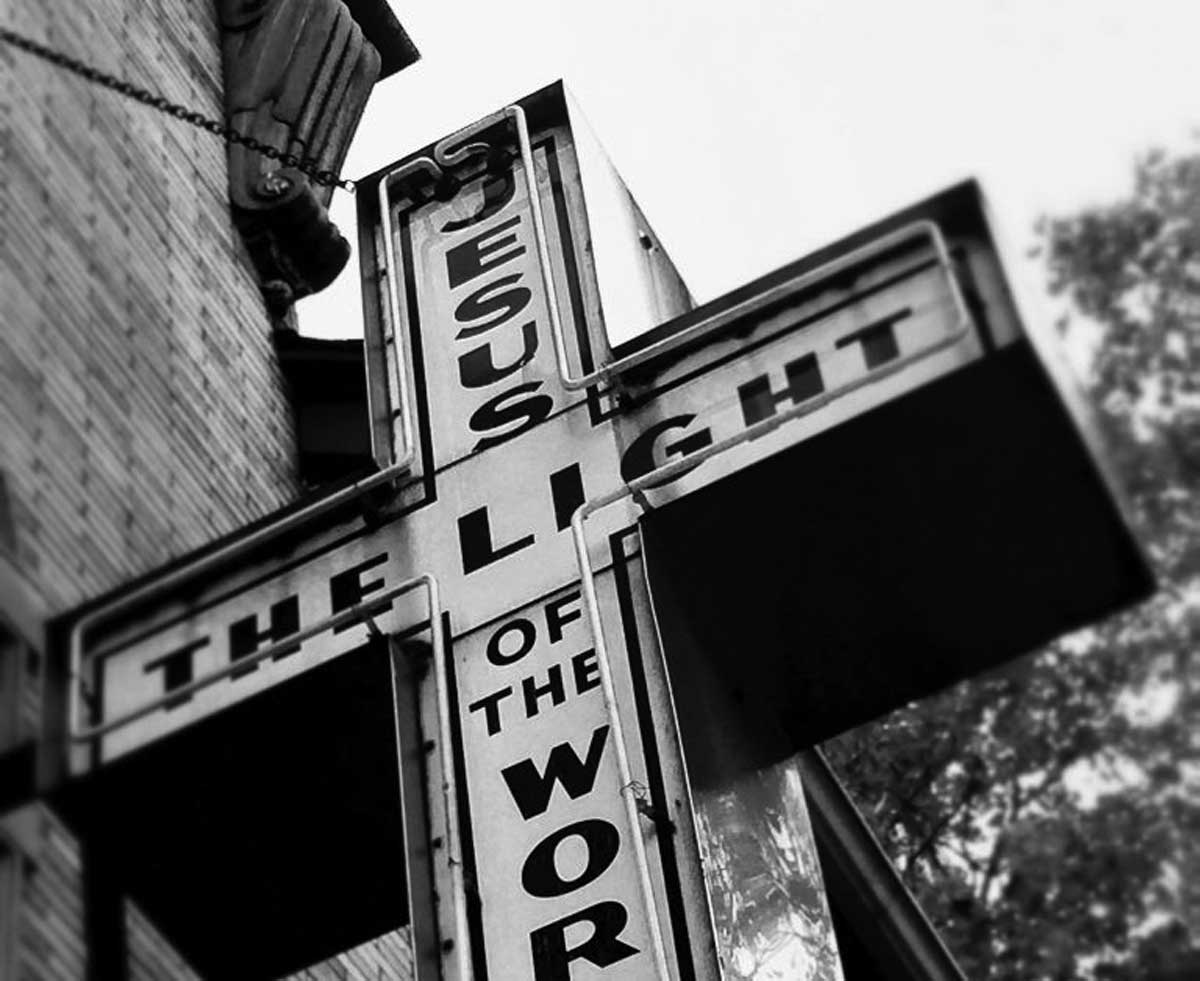Mormon Vampires in the Garden of Eden
What the Bestselling Twilight Series Has in Store for Young Readers
by John Granger
If you have visited a bookstore, scanned the tabloids at a grocery store check-out, or watched Entertainment Tonight at the airport (no one I know admits to watching the show at home) any time in the last four years, you know something about Stephenie Meyer’s Twilight books. They continue to dominate best-seller lists more than a year after the finale was published, and the movies based on the stories, like the novels, are second only to J. K. Rowling’s Harry Potter series in popularity.
Having been dragged into the Twilight books much against my will, I was delighted to find that Mrs. Meyer is a wonderful storyteller, if no champion stylist, and that her popularity isn’t due to Harry Potter withdrawal so much as to the artistry and meaning of her own work. Though they feature vampires, the novels are not vampire genre pieces; they are a brilliant mélange of Young Adult romance, alchemical drama, superhero comic book, and international thriller. This kind of seamless double and triple coding is no small feat, but Mrs. Meyer pulls it off.
A Spiritual Need
I suggest that the Twilight series is something for thoughtful people to be aware of and to think seriously about, first, because of its remarkable hold on the imagination of American readers and movie-goers, but second, and more important, because of the reason these books are so popular: They meet a spiritual need. Mircea Eliade, in his book The Sacred and the Profane, suggests that popular entertainment, especially imaginative literature and film, serves a religious or mythic function in a secular culture. When God is driven to the periphery of the public square, the human spiritual capacity longs for exercise, and it often finds it in the “suspension of disbelief” and activity of the imagination that are available in novels and movies.
The books and films that satisfy this spiritual longing most profoundly are the ones that have religious content of some kind, sometimes any kind. Not just The Lord of the Rings and The Chronicles of Narnia but also Harry Potter and The Matrix contain symbolism and religious notes that resonate with readers and moviegoers.
Which brings us to Twilight. These Gothic romances featuring atypical vampires and werewolf champions are allegories about the love relationship between God and Man. They are, in fact, a re-telling of the Garden of Eden drama—with a Mormon twist. Here, the Fall is a good thing, even the key to salvation and divinization, just as Joseph Smith, Jr., the Latter-day Saint prophet, said it was. Twilight conveys the appealing message that the surest means to God are sex and marriage.
The Twilight Story
For those who haven’t read the series, here are basic plot summaries to help you follow the discussion:
Twilight: The heroine, Bella Swan, moves from sunny Phoenix, Arizona, to live with her dad in perpetually overcast Forks, Washington, out on the Olympic Peninsula. At Forks High School she meets and falls in love with Edward Cullen, a pale, handsome stranger with a secret. It turns out that he’s a vampire (if nothing like Count Dracula), and it’s all he can do to keep from eating her alive despite his family’s determination to live on animal blood rather than by killing and draining human beings. James, a Tracker vampire with no such scruples, decides he wants to hunt Bella down for lunch. Edward and family save the day after Bella serves herself up to James sacrificially to save mom.
John Granger is an Orthodox Reader and the author of several books about Harry Potter, including How Harry Cast His Spell (SaltRiver, 2008) and The Deathly Hallows Lectures (Zossima Press, 2008). His website is HogwartsProfessor.com.
subscription options
Order
Print/Online Subscription

Get six issues (one year) of Touchstone PLUS full online access including pdf downloads for only $39.95. That's only $3.34 per month!
Order
Online Only
Subscription

Get a one-year full-access subscription to the Touchstone online archives for only $19.95. That's only $1.66 per month!
bulk subscriptions
Order Touchstone subscriptions in bulk and save $10 per sub! Each subscription includes 6 issues of Touchstone plus full online access to touchstonemag.com—including archives, videos, and pdf downloads of recent issues for only $29.95 each! Great for churches or study groups.
Transactions will be processed on a secure server.
more from the online archives
calling all readers
Please Donate
"There are magazines worth reading but few worth saving . . . Touchstone is just such a magazine."
—Alice von Hildebrand
"Here we do not concede one square millimeter of territory to falsehood, folly, contemporary sentimentality, or fashion. We speak the truth, and let God be our judge. . . . Touchstone is the one committedly Christian conservative journal."
—Anthony Esolen, Touchstone senior editor









